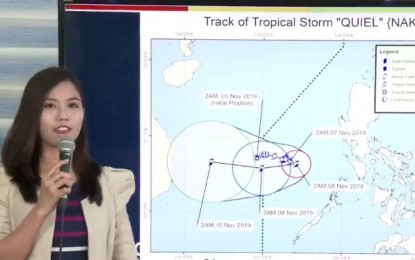
(FIle photo)
MANILA – A party-list lawmaker on Friday said the government should convince more high school students to choose meteorology and Earth sciences for their courses in college and their careers to address the personnel shortage problem of the Philippine Atmospheric, Geophysical and Astronomical Services Administration (PAGASA).
Ang Probinsyano Party-list Representatives Alfred Delos Santos said the staff shortage in PAGASA is a supply chain issue considering that most Filipino high school students from the science, technology, engineering, and mathematics (STEM) strand usually prefer becoming doctors, engineers, accountants, geologists, chemists, and physicists, among others.
"PAGASA’s dire need for many new personnel is a difficult problem to solve. Meteorologists are in high demand in the private sector and overseas. In fact, PAGASA has lost some of its experts to those greener pastures," Delos Santos said.
He further noted that it is not only PAGASA that needs weather scientists, but also local government units to better prepare them against storms, monsoons, tornadoes, and storm surges.
"Mayors and governors, unfortunately, do not have scientists by their side who would give them the right advice when they are about to face natural calamities," he said.
He said one quick way for PAGASA to have new weather specialists is to convince those who are already in science programs in college to switch to meteorology.
He said there are only four state universities offering meteorology programs: Mariano Marcos State University (MMSU) in Batac, Ilocos Norte; Visayas State University in Baybay, Leyte; Central Luzon State University (CLSU) in Muñoz, Nueva Ecija; and Bicol University (BU) in Legazpi, Albay.
Delos Santos said he is considering filing a measure that would incentivize the offering and taking of undergraduate and graduate courses related to meteorology.
"The Philippines being prone to natural calamities causing billions in property and crop damage and thousands of lives lost, so the incentives would be worth the investment," he said. (PNA)
